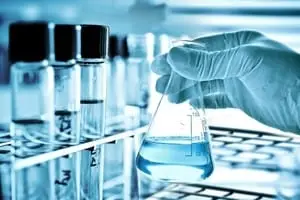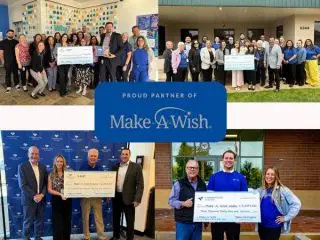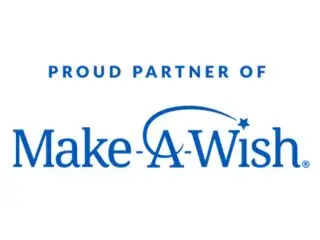 Reviewers at the U.S. Food and Drug Administration have officially recommended approval of a drug by Novartis that is a biosimilar of Amgen Inc’s Neupogen, an extremely successful cancer drug. Not only does this development suggests that a generic, less-expensive version of this complex drug could soon be available in the U.S., but it also points to the potential for biosimilar drugs to soon become a norm in American medicine. Historically, biosimilar drugs have not been widely embraced in the states because no safety guidelines had been implemented. Overall, there was concern over the efficacy of generic drug alternatives. However, the FDA developed new regulations for biosimilars that took effect in 2012, and Novartis’ copy of Neupogen is slated to be one of the first approved.
Reviewers at the U.S. Food and Drug Administration have officially recommended approval of a drug by Novartis that is a biosimilar of Amgen Inc’s Neupogen, an extremely successful cancer drug. Not only does this development suggests that a generic, less-expensive version of this complex drug could soon be available in the U.S., but it also points to the potential for biosimilar drugs to soon become a norm in American medicine. Historically, biosimilar drugs have not been widely embraced in the states because no safety guidelines had been implemented. Overall, there was concern over the efficacy of generic drug alternatives. However, the FDA developed new regulations for biosimilars that took effect in 2012, and Novartis’ copy of Neupogen is slated to be one of the first approved.
The road to FDA approval
Novartis’ drug must still be reviewed by a panel of experts on Jan. 7, 2015. According to the Wall Street Journal, Novartis, under its biosimilar branch titled Sandoz, was the first company to file for approval of a biosimilar back in July 2014.1 The drug, which carries the brand name Zarzio, is currently sold in more than 40 other countries, but the U.S. could prove to someday make up the majority of the drug’s sales if approved. The FDA considers biosimilar drugs as having no clinically meaningful differences from U.S. approved biological drugs, and they must meet the same standards of safety, purity and potency as their counterparts.2 Simply put, biosimilar drugs have minor, innocuous differences, but must still serve the same purpose as an approved name brand drug. The Sandoz drug therefore functions the same as Neupogen, a drug used on breast cancer patients undergoing chemotherapy to help prevent infections from occurring. Sandoz had to present significant evidence to the FDA that its biosimilar drug met all of the necessary criteria to be considered safe and effective. Hence, Sandoz needed to demonstrate, in accordance with FDA guidelines, that its drug was interchangeable with Neupogen.2 In a briefing statement, the FDA claimed that the biosimilar drug met “all of the five indications for which US-licensed Neupogen is approved.”3
How biosimilars are changing the pharmaceuticals industry
Biosimilars are not a new development within the pharmaceuticals industry, but these drugs will certainly play a major role in the field of pharmacy technology over the coming years. Biosimilars are not exact copycat drugs, but they are cheaper alternatives to expensive medicines. Whereas there may be dozens of off brand versions of over-the-counter pain relievers, biologics cannot be replicated in the same way, and therefore any attempt at a copy will have some distinct differences. Hence, when a biosimilar is approved and can be produced at a lower cost, there’s potential for a huge demand as it can be sold at a more affordable price point. According to Reuters, these drugs cost 20 to 30 percent less on average, and are anticipated to account for 25 percent of off-patent biologics sales by 2020.4 Not only is it extremely likely biosimilars will become more popular in the coming years, but this could also drive down the cost of drugs and make numerous treatment options more affordable for patients. In the U.S., this change has been somewhat anticipated since the Patient Protection and Affordable Care Act was passed into law. Now, with the law in full effect, pharmaceuticals companies are starting test the waters.
1 “Novartis wins FDA staff OK for Neupogen biosimilar,” by Marta Falconi, The Wall Street Journal, Jan. 5, 2015. http://www.wsj.com/articles/novartis-wins-fda-staff-ok-for-neupogen-biosimilar-1420479384
2 “Information for healthcare professionals,” FDA. http://www.fda.gov/Drugs/DevelopmentApprovalProcess/HowDrugsareDevelopedandApproved/ApprovalApplications/TherapeuticBiologicApplications/Biosimilars/ucm241719.htm
3 “FDA briefing document,” Oncologic Drugs Advisory Committee Meeting, Jan. 7, 2015.http://www.fda.gov/downloads/AdvisoryCommittees/CommitteesMeetingMaterials/Drugs/OncologicDrugsAdvisoryCommittee/UCM428780.pdf
4 “FDA staff recommends Novartis copy of Amgen’s Neupogen,” by Natalie Grover, Reuters, Jan. 5, 2015. http://www.reuters.com/article/2015/01/05/us-novartis-amgen-fda-idUSKBN0KE12120150105



